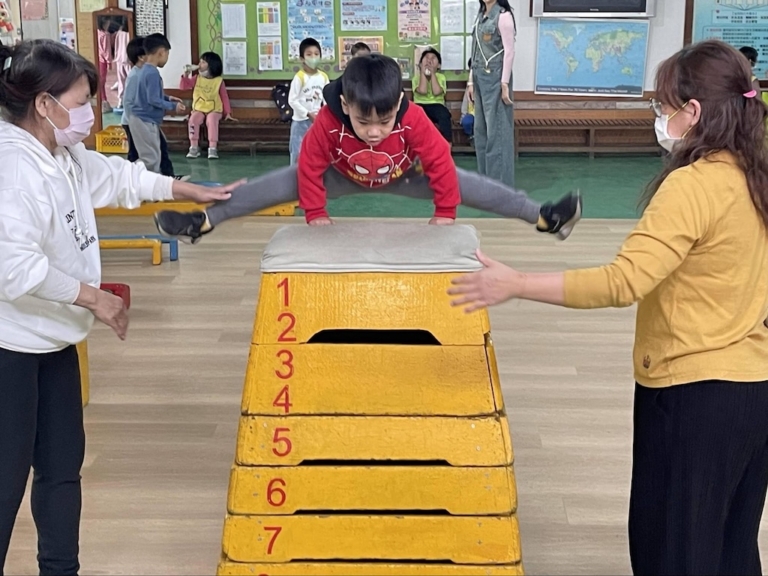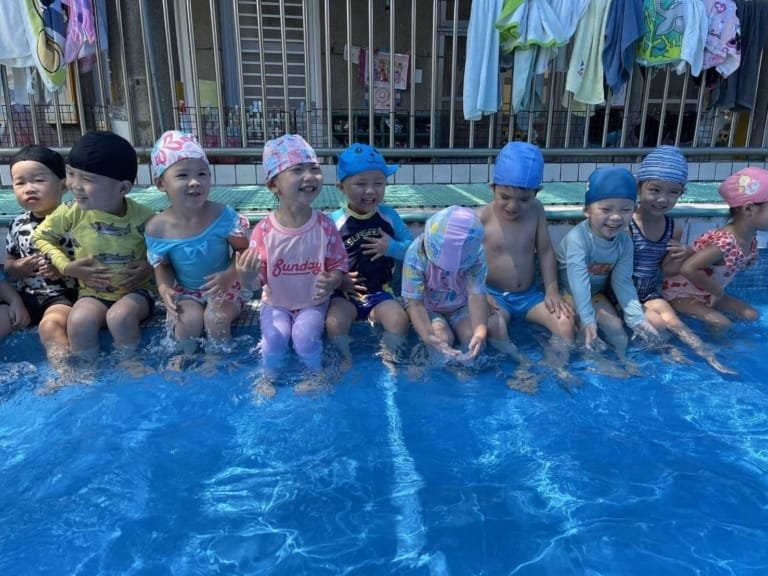
Learning to get along with people
Ask the children ~ Why do you come to kindergarten? To learn and to play. Which is better?" "To learn and play alone or to learn and play together? Which is better?" The children say in unison that it is better for all of us to learn and play together. Ask again: Do you have any "friends"? Everyone raised their hands; are friends important? "So we led the children to recite a children's song on "making friends", "Making friends - few friends, so annoying, no one to play with me".


